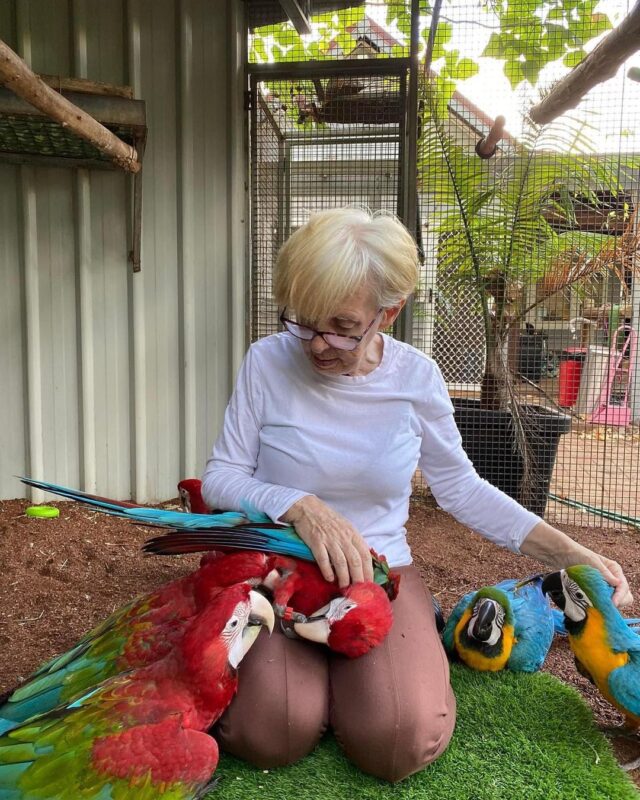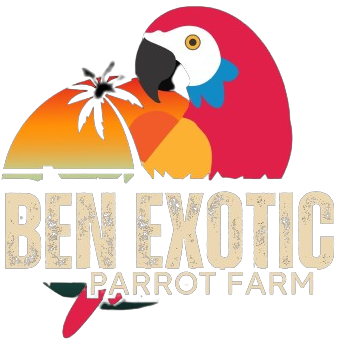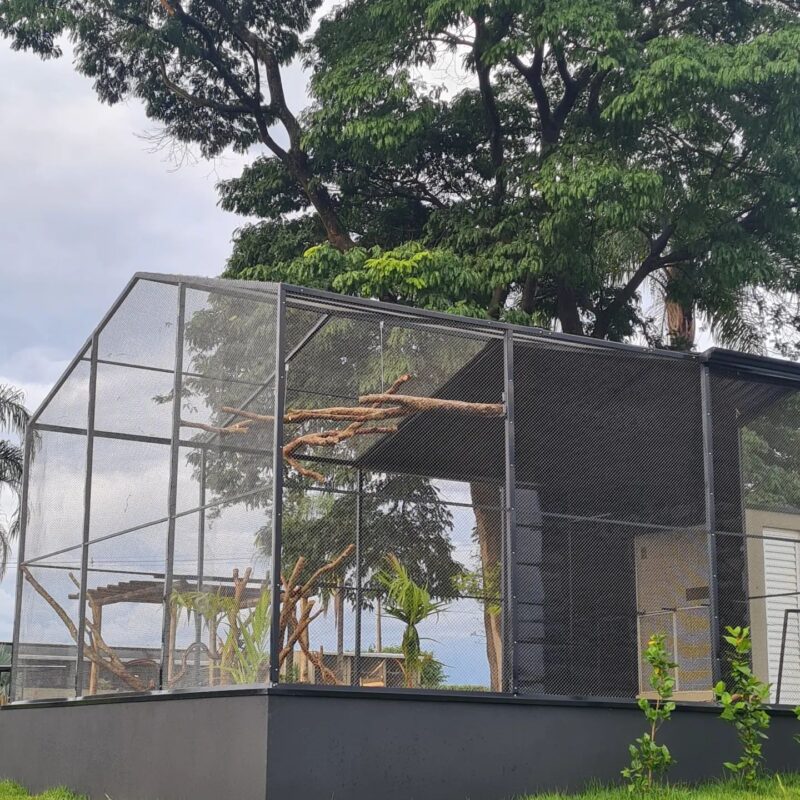
At Ben Exotic Parrot Farm, our mission is to promote the well being and conservation of parrots through responsible breeding, education and advocacy. We are dedicated to providing a safe and loving environment for tese magnificent birds while also contributing to their preservation in the wild. 15 years ago our founders, embarked on a mission to create a farm for parrot in need. We started as a small family-owned operation and have since grown into a leading parrot care and conservation facility. Our top priority is the health, happiness and welfare of our parrots, we ensure they receive the best nutrition, medical attention and social interaction.
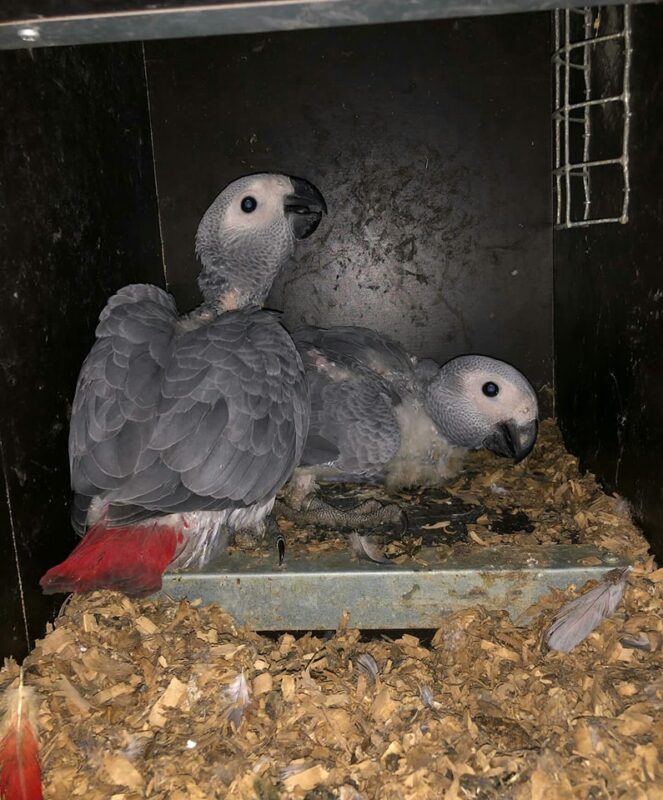
We also activate support conservation effort aimed at protecting parrot species in the wild. This includes both financial contributions and raising awareness about the challenges parrots face in their natural habitats, we believe in the power of education to inspire positive change. We offer educational programs, workshops and resources to help people better understand parrots and their needs. While we do engage in responsible breeding practices, we are committed to ethical breeding that prioritize the well-being of the birds over profit. Our breeding program is aimed at maintaining healthy and genetically diverse parrot populations. We collaborate with experts in the field to conduct research on parrot behavior, health and breeding techniques. This research helps us improve our care practices and contributes valuable knowledge to the broader scientific community.
For those looking to provide a loving home to a parrot, we offer adoption services. Our adoption process is thorough to ensure that our parrots find the right forever homes. Our parrots for sale enjoy spacious and meticulously designed aviaries that closely resemble their natural habitats. Each aviary is equipped with perches, climbing structures and plenty of room for flight and exercise. Our facility houses a diverse collection of exotic parrot species from around the globe. From the vibrant Scarlet Macaw to the charming African Grey, you’ll find an array of species that showcase the breathtaking diversity of parrots.
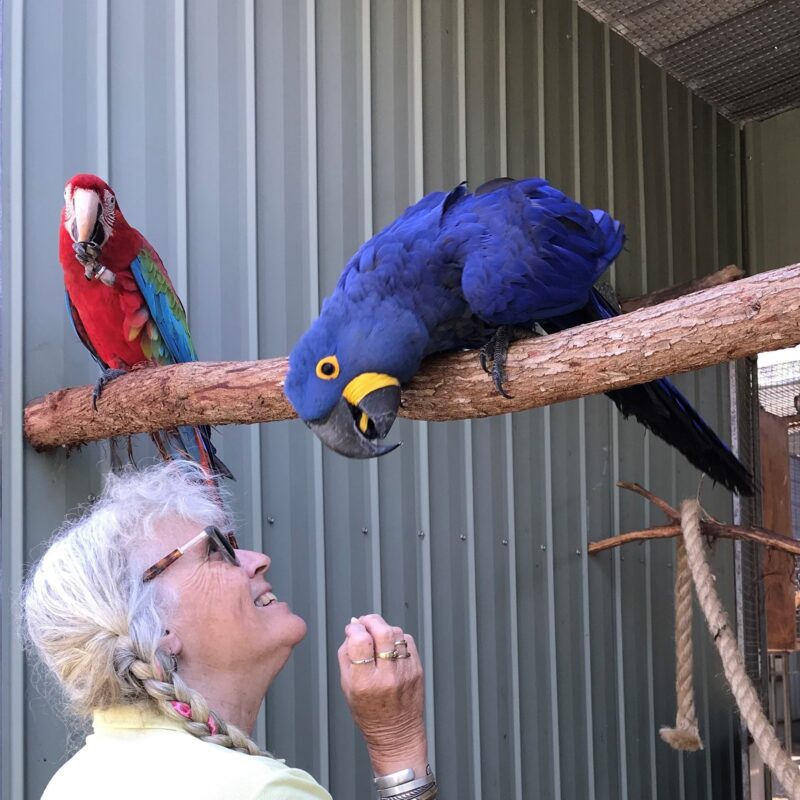
A LITTLE ADVICE ABOUT BECOMING A BREEDER
Starting a parrot farm can be a fascinating and rewarding venture, whether it’s for breeding, selling, or simply enjoying the companionship of these intelligent and colorful birds. Here’s a comprehensive guide to help you get started:
Understanding Parrots
- Species Selection: Choose the species you want to farm. Popular options include African Greys, Macaws, Cockatoos, and Parakeets.
- Behavior and Needs: Learn about their social behavior, dietary needs, and environmental requirements.
Legal Considerations
- Permits and Licenses: Check local regulations regarding the keeping, breeding, and selling of parrots.
- Endangered Species: Be aware of any restrictions on endangered species and ensure compliance with CITES (Convention on International Trade in Endangered Species of Wild Fauna and Flora).
Setting Up the Farm
Aviary Design
- Space Requirements: Provide adequate space for flying, perching, and socializing. Larger species need more space.
- Caging: Use strong, durable materials. Stainless steel is ideal due to its resistance to rust and ease of cleaning.
- Environmental Control: Ensure proper ventilation, temperature control, and lighting.
Feeding and Nutrition
Balanced Diet: Provide a diet that includes fresh fruits, vegetables, nuts, seeds, and formulated pellets.
Clean Water: Always have fresh water available.
Breeding Practices
Pair Selection
- Genetic Diversity: Select breeding pairs that are genetically diverse to prevent inbreeding.
- Health Check: Ensure both birds are healthy and free from diseases.
Nesting and Incubation
- Nesting Boxes: Provide appropriate nesting boxes for the species you are breeding.
- Incubation: Some parrots may require artificial incubation; learn the proper techniques and equipment needed.
Health and Veterinary Care
- Regular Check-ups: Schedule regular veterinary check-ups for your parrots.
- Disease Prevention: Vaccinate and maintain a clean environment to prevent the spread of diseases.
5. Business Operations
Marketing and Sales
- Target Market: Identify potential buyers such as pet stores, private buyers, and other breeders.
- Online Presence: Create a website or use social media to market your parrots.
- Customer Education: Educate buyers on the proper care of parrots to ensure they go to good homes.
Financial Management
- Budgeting: Plan for initial setup costs, ongoing maintenance, and unexpected expenses.
- Record Keeping: Maintain detailed records of expenses, breeding logs, and sales.
6. Ethical Considerations
- Animal Welfare: Prioritize the well-being of your parrots, ensuring they are treated humanely.
- Breeding Ethics: Avoid over-breeding and ensure that each parrot receives proper care and attention.
7. Continuous Learning
- Stay Informed: Keep up-to-date with the latest research and trends in parrot care and breeding.
- Networking: Join parrot breeder associations and forums to connect with other breeders and experts.
Example Setup Costs
- Aviary Construction: $5,000 – $20,000
- Breeding Pairs (initial stock): $1,000 – $10,000 per pair, depending on the species
- Incubation Equipment: $500 – $2,000
- Veterinary Costs: $500 – $2,000 annually
- Food and Supplies: $100 – $500 per month
Starting a parrot farm involves careful planning, a significant investment of time and resources, and a commitment to the welfare of the birds. By following best practices and continuously educating yourself, you can create a successful and ethical parrot farming business.
If you need more detailed information on any specific aspect of parrot farming, feel free to ask!
